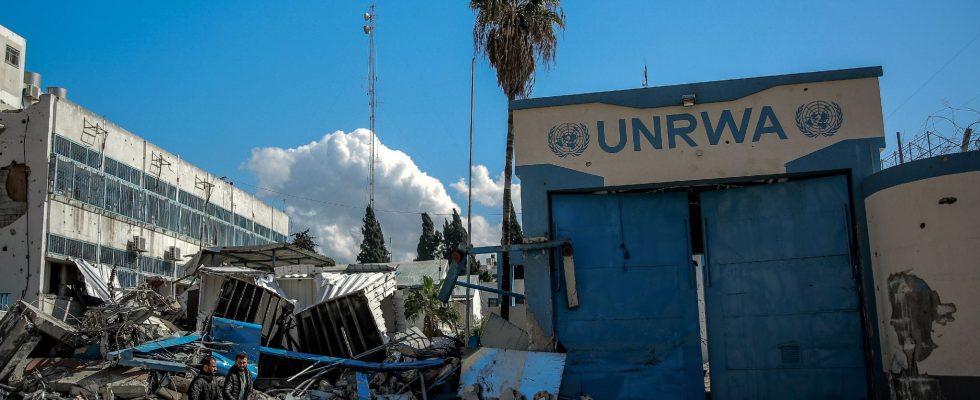Since January 26, the UN agency for Palestinian refugees has been at the heart of turmoil and suspicion. That day, UNRWA, consumed by the humanitarian catastrophe in the Gaza Strip, took the lead by indicating that 12 of its employees were accused by Israel of having “actively participated” in the Hamas attack on October 7, 2023. Extremely serious revelations. Determined to reject any collusion with the terrorist group, the UN dismissed nine employees it was able to identify – at least one of the three others was declared dead – and launched an independent investigation to shed light on these facts, entrusted to the former French Minister of Foreign Affairs, Catherine Colonna.
The scandal had immediate consequences: around fifteen governments announced the suspension of their funding, including its two most important donors, the United States and Germany. Two and a half months after the turmoil caused by the Israeli accusations, UNRWA is trying, as best it can, to emerge from this crisis, in an emergency context, facing the risk of famine. The promise of close monitoring of the agency and its activities convinced some donors to resume their payments, such as Finland, France and Japan.
If the report to be delivered by Catherine Colonna on April 20 proves damning, UNRWA could see its future compromised. Because the agency, which for seventy-five years has managed humanitarian, health and education programs in Gaza – but also in the West Bank, Jordan, Syria and Lebanon – for the benefit of Palestinians displaced in 1948, does not is not his first resounding scandal.
An essential logistical network in Gaza
In 2017, the principal of one of its schools was fired after his election to the Hamas political bureau. UNRWA also admitted that weapons from the Palestinian organization had been stored in its establishments. At the end of the 2000s, the former legal head of the UN agency, James G. Lindsay, already denounced a lack of control over the profile of employees (13,000 in Gaza out of the agency’s 30,000, mostly local). ), but also school textbooks containing anti-Israeli messages. “Can anyone be surprised that members of Hamas are employees of UNRWA and, for some, active terrorists?” he asks.
UNRWA ensures that it is doing its best to avoid being swallowed up and apply zero tolerance, even though the Islamist movement exercises authoritarian control over the enclave. But the local population, which represents the vast majority of employees, is often connected to Hamas, on civilian or military levels. “UNRWA is not an intelligence agency and cannot ensure that none of its employees are part of Hamas,” said Alexandre Chatillon, founder of the NGO Supernovae, financed by France to promote integration. economic situation of women in Gaza. It is inevitable that it will be infiltrated by the people of Hamas, with whom it was impossible not to have links.” Paris would particularly like strong measures to better filter those recruited.
Returning from a trip to Gaza at the beginning of March, the humanitarian assured, however, that UNRWA is more essential than ever: “It is thanks to its logistical network and its integration into local communities that hundreds of thousands of Gazans , currently, do not die.”
The Israeli government is trying to do without it in the northern part of Gaza, where there are still 300,000 inhabitants – but the rare authorized, unsecured convoys are subject to stampedes and deadly shootings. “Getting rid of UNRWA also serves its objective of using the distribution of aid to create a ‘clientele’ on which to rely after the war, but this strategy will not work, estimates Laure Foucher, researcher at the Foundation for Strategic Research. Dismantling UNRWA would undo what it was created to do, namely the issue of Palestinian refugees and the right of return.”
.
